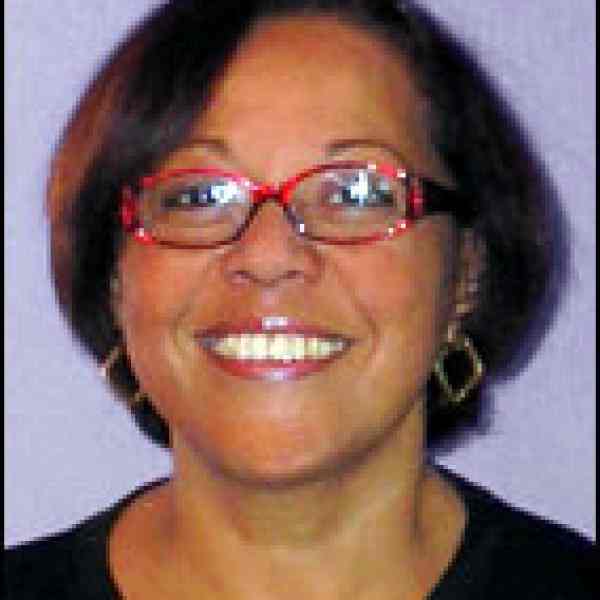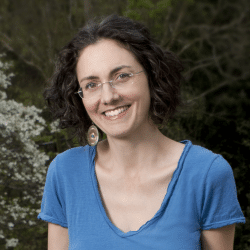Introduction
In the big cities of Brazil, thousands of social outcasts live in grinding poverty in the slums. In a country where traditional “machismo” gender roles still exert a powerful influence, young women, especially, are trapped without any way to get an education, hold a job, or better their situation. Even worse, women’s status as second-class citizens means that many of these women suffer from crippling self-doubt. Lara Dee has partnered with a number of Brazil’s samba schools and transformed them into holistic beauty/salon schools, where these once-hopeless women can get a practical education that can lead to rewarding employment.
The New Idea
In a macho culture where women are too often still regarded as inferior, Lara Dee gives women a new way to ensure their own survival. Dee’s organization “Beleza e Cidadania” (Beauty and Citizenship) helps poor women become professional workers while at the same time becoming more confident, emotionally stable human beings.
Women join hoping to learn a professional trade, but they learn much more in Dee’s program. Knowing the psychological obstacles to self-sufficiency that women face in a male-dominated society, Dee brings in psychologists and counselors as well as teachers. Her school is more than just a training camp; it is a complete, holistic center, striving to help women in all aspects of their lives.
Classes are held in Brazil’s samba schools, large rehearsal spaces typically only in use during Carnaval season and vacant for the rest of the year. Usually located in the heart of the favelas (slums), they are perfect locations for schools catering to the cities’ most underprivileged citizens. To jump-start the program, Dee solicits donations from large cosmetic companies, so that students will always have adequate beauty supplies and equipment with which to practice and learn their craft. Dee originally began her school with some help from an old friend who now owns a large publishing company in the cosmetics business, and Dee still has extensive contacts within the industry.
The Problem
Although Brazil is in many ways a progressive modern nation, traditional ideas about gender and sex die hard. Men are still seen as the superior sex, the only ones who could benefit from an education and would be capable of holding down a job outside the home. This attitude is especially predominant in Brazil’s slums, where women are still expected to work inside the home as wives and mothers.
But for many single women—who don’t have a family or a man to support them—this traditional worldview sentences them to a life of poverty. Most young girls admit to having unprotected sex with different partners, which puts them at risk not only for sexually transmitted diseases but also for unplanned pregnancies. The young single women who find themselves looking after their new babies face an uphill battle; their children demand their undivided attention, making it even more difficult for them to attend school or to hold steady employment. By the age of 30, with no education and no job prospects, many of these single mothers turn to drugs and crime to survive.
Compounding this problem, their low status in the community—being both poor and female—decimates their sense of self-worth. In Brazil, many poor women suffer from depression, low self-esteem and feelings of worthlessness. However, a long-standing stigma against emotional counseling discourages women from seeking treatment. In addition, poor women are usually too concerned with day-to-day survival, with making enough money just to get by, to worry about their emotional well-being.
If women had a place that could give them an education, teach them a trade, and help them develop a sense of their own self-worth, it would be a tremendous step forward for women in this patriarchal country.
The Strategy
According to data from the “Passarela do Samba,” there are approximately 2,100 registered samba schools in Brazil. Although very large (the average size of a school’s campus is about 50,000 square feet), they are used only during Carnaval season. Living in São Paulo, Dee noticed that the schools with their large auditoriums stood empty for the remainder of the year, despite the fact that they are located in densely populated, underprivileged neighborhoods where locals are in desperate need of open spaces for holding social activities.
Most schools are run by traditionally-minded “old school” men, who tend to dismiss ideas of female empowerment as impractical or silly. Nevertheless, Dee has convinced many to open up their schools for her “Beleza e Cidadania” in the samba off-season; since their buildings would simply be empty otherwise, they have nothing to lose in this arrangement. In addition, as these men, many of whom are respected and powerful community leaders, watch Dee’s program in action they gradually come to have a new respect for the abilities of women.
Dee’s first move after starting a school is to send out invitations into the community, asking people to attend a project presentation meeting. At this meeting, Dee presents her program, its many activities, and her overall goals—one of which is to identify and employ local women as “educators” at the school. Following that, the first course is held: hand care. During this course, women who show special aptitude are selected as educators and charged with teaching in the district. Cosmetic companies donate many of the products for Lara’s schools.
Volunteer psychologists and psychiatrists not only help identify the educators, but also monitor the local women’s situations, keeping an eye out for serious cases of depression and other possible problems. Students, meanwhile, continue to take courses, such as pedicure, hairstyling, Brazilian wax, and make-up, all the while becoming more committed to their education and more eager to test their new skills with employment. At the same time, the female students find themselves within a community of peers and mentors, sometimes for the first time in their lives. This supportive atmosphere is important in helping to build the women’s self-confidence after a lifetime of always being short-shifted in favor of men. Knowing that the women need practical help in earning a living as well as the more intangible benefits of self-esteem, Dee is always careful to focus on both job-training and confidence-building. After all, few women would attend if they thought they wouldn’t learn a money-making skill at the school.
Dee is sensitive to the fact that not every woman in her program shares the same ultimate goal. “Beleza e Cidadania” does not use a cookie-cutter approach to education, where every student is expected to simply become a factory beautician. Dee’s program provides support and training for women who would rather work from home or even found their own businesses.
The “Beleza e Cidadania” job agency, which focuses on placing the school’s graduates with employers, already has 1,340 graduates in its database. The school has built up a good reputation amongst the city’s beauty parlors, and beauticians come to the agency daily, looking for new workers.
To further help her graduates find work, Dee has also formed a partnership with famous business consultant Roberto Capeli to teach a course on business etiquette. A woman who has passed this course and graduated from the “<i>Beleza e Cidadania</i>” finds that her new expertise opens doors, not only in beauty parlors but also in local drugstores, where cosmetics are huge sellers. The Aprofar (a large association of drugstores) has hired 40 graduates between the ages of 18 and 25 to work in its drugstore chain.
As a result, the project has become highly visible throughout the city, to the point that other samba schools are now seeking out Dee to propose partnerships. The Parlor-School of “Beauty and Citizenship” is currently established in seven samba schools and will open in six more by the end of the year. Dee hopes that her efforts to engage community leaders will encourage other such partnerships between businesses or community organizations interested in helping the local community.
Dee has spread her methodology to an organization in Rio de Janeiro, close to the Beija-Flor samba school, hoping to repeat her success in São Paulo. At the moment, Dee’s project is dependent on supplies donated by philanthropic cosmetics companies, but she recognizes that, as the program expands, donations may no longer meet the schools’ need for training supplies. To solve this dilemma, Dee plans to start a line of beauty products with the “Beleza e Cidadania” name to help generate income for her organization. Considering that “Beleza e Cidadania” already has substantial name recognition and is widely respected within the city’s beauty parlor culture, this venture would be bound to be successful.
The Person
Lara was born in Itabuna, Bahia, and moved to São Paulo when she was 12 years old. Growing up in a poor family, she has been involved in mobilizing her community around social issues from a very young age. At the age of 13, she first organized the women in the community to demand that the government and utility companies provide the same social services to the poor suburbs that it provided in the wealthy city center. For example, the gas company was reluctant to deliver heavy gas containers for kitchen use to the doors of poorer suburban residents until Dee and her group insisted that they deserved the same treatment as the company’s richer clients.
Later, Dee’s life took an unexpected turn when she became a dancer on a television program. She left her life as a poor young woman to become an instant celebrity, appearing on one of the most watched talk shows in the country. Despite her new fame, Dee never forgot her early life in the slums and to this day still strives to improve the lot of Brazil’s poorest citizens.
In this spirit, Dee dedicated herself to a series of volunteer jobs in the favelas of Rio de Janeiro. In 1985, she rented a shed in São Cristovão and created a cooperative of women to produce and sell clothes in the favelas. Eventually, she started working at the Viva Rio organization as project coordinator, but, as time went by, she felt the need to develop her own project. In 2002, she created “Beleza e Cidadania,” supported by a friend who owns the biggest publishing company in the cosmetics field.




